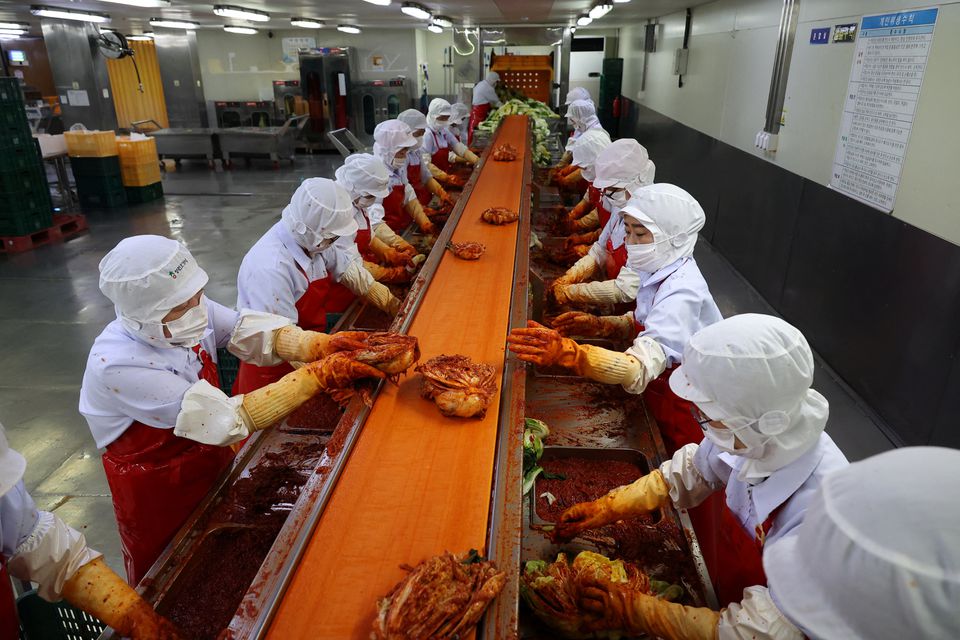South Korea's kimchi makers are in serious pain - brought low as a climate change-induced shortage of cabbages sent prices rocketing this year, exacerbating damage inflicted by cheaper offerings from Chinese competitors.
Such is the sense of crisis surrounding the spicy pickled side dish eaten daily by many Koreans and central to Korean identity, that the government recently laid out plans to construct two massive cabbage storage facilities.
At 9,900 square metres each, the facilities to be built in the rural counties of Goesan and Haenam will, combined, be equivalent to three football fields in size. They will be able to store 10,000 tonnes of cabbages and pickle 50 tonnes of cabbages daily.
Construction, expected to cost taxpayers 58 billion won ($40 million), is due to be completed in 2025.
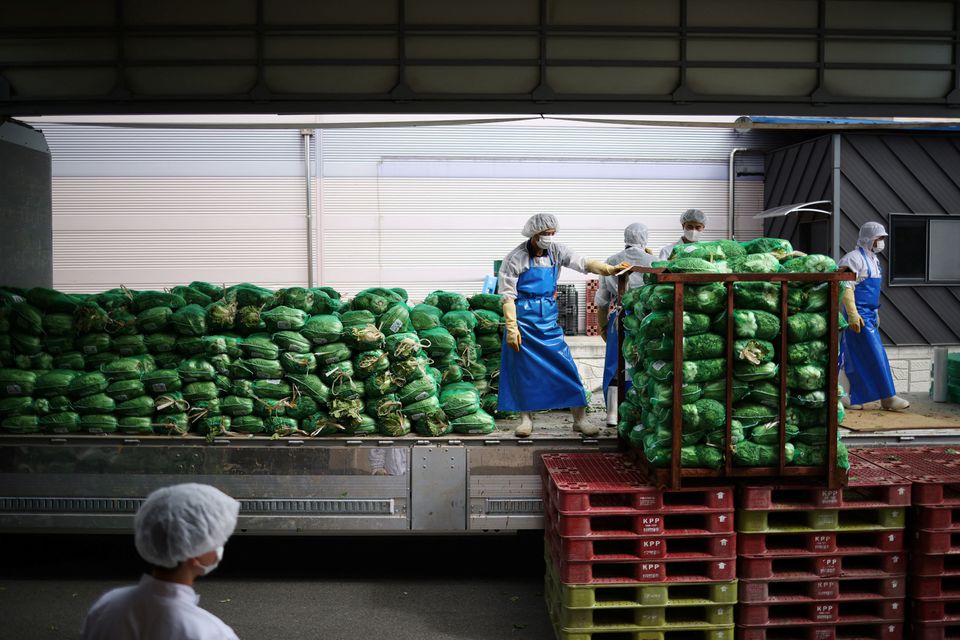
For local kimchi makers struggling to purchase sufficient cabbages at current high prices, government intervention to store the produce and supply the industry at affordable rates can't come soon enough.
A climate shift in recent years that has brought higher temperatures and heavier rain has damaged cabbage crops, curtailing supply. This year, prices of cabbages doubled in less than three months, part of a broad spike in inflation to 24-year highs hit in July.
"We used to purchase cabbages in June then store them for use later when cabbage prices climb, but this year we are already out of stock," said Ahn Ik-jin, chief executive of kimchi maker Cheongone Organic.
"We used to produce 15 tonnes of kimchi a day but now we are only producing 10 tonnes or less," he said. His company has had to raise its kimchi price by two-thirds to 5,000 won ($3.5) per kilogram.
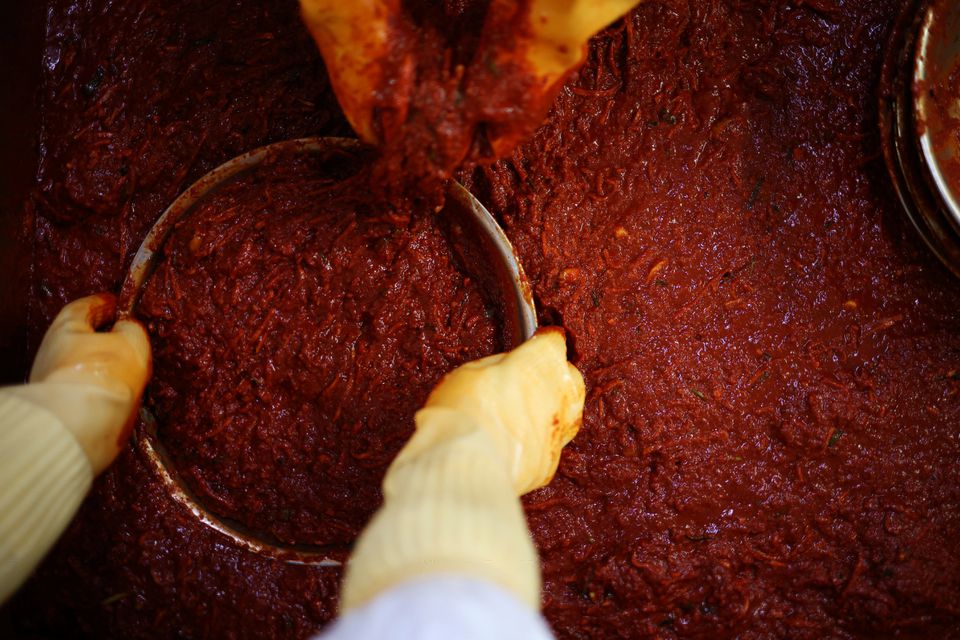
South Korea's kimchi industry has been on a slippery slope for quite some time.
Chinese imports, often priced at about a third of locally made kimchi, have surged over the past two decades to account for 40% of the domestic market for commercially made kimchi.
Add in weak cabbage harvests over recent years and much of the industry has just crumbled. (While kimchi can be made from other ingredients, about three-quarters of commercially made kimchi is cabbage-based.)
Last year, almost half of South Korea's 1,000-odd kimchi makers either shut down permanently or temporarily or switched over to other products, according to a study by Korea Rating & Data.
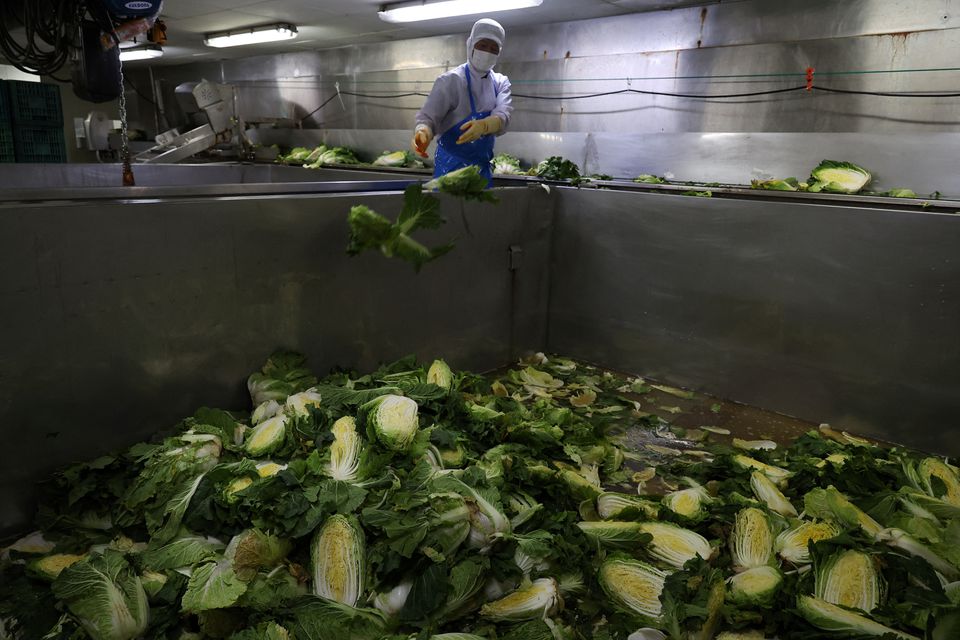
Korean kimchi makers are hoping the government's plan will at least prevent home-grown producers from losing further ground.
For its part, the government hopes the storage complexes will also "greatly contribute to strengthening domestically made kimchi's position globally," said Lim Jeung-guen, deputy director of the agricultural ministry's food industry promotion division, adding that more complexes could be built if the first two work out well.
The country's kimchi exports surged 10.7% to a record $160 million last year, riding a wave of interest in Korean culture propelled by the likes of boy band BTS and Netflix's dystopian drama "Squid Game".
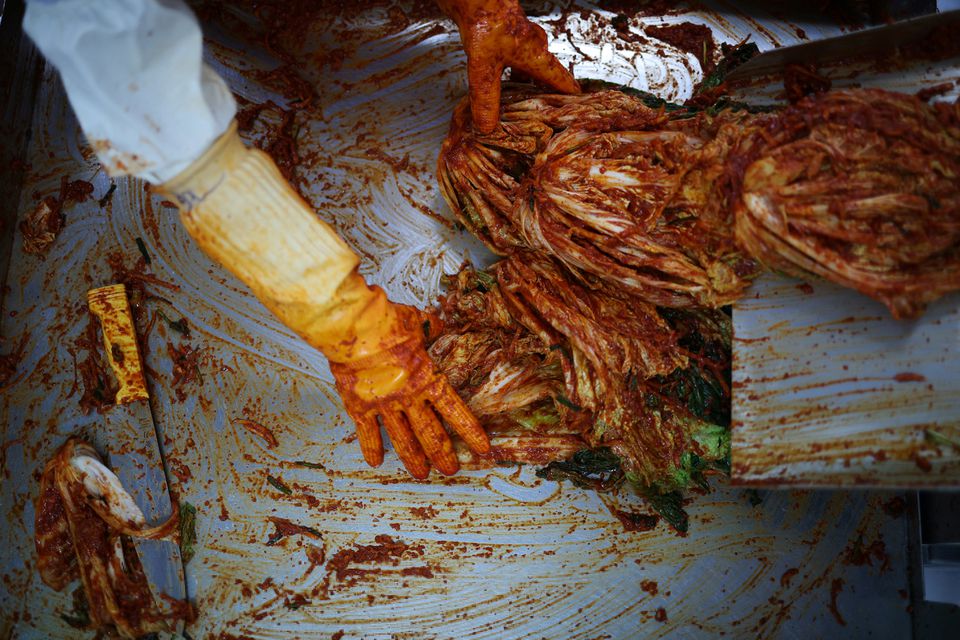
Domestically, however, concern is growing that the cabbage shortage will also torpedo the tradition of 'Kimjang' - the making and sharing of kimchi among families, friends and communities, often conducted in but not limited to November.
According to an official at the Hanaro Mart supermarket chain, sales of ready-made kimchi have climbed 20% since August compared to the same period from a year earlier.
"I normally make kimchi myself but the cost of ingredients has gone up so much," says Kim Sook-kyung, 72, as she bought ready-made kimchi at a supermarket in Seoul.
"I plan to mix making and buying kimchi going forward."



